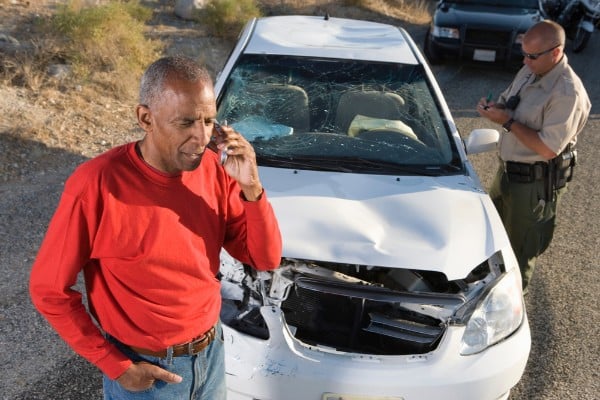If the police didn’t respond to your accident to create a collision report, you can still file an insurance claim. However, without a report, you may need additional evidence to prove what happened.
A police accident report can serve as powerful evidence of what happened in a California accident and who was to blame. But not every accident gets a response from local police or the California Highway Patrol (CHP). And in some accidents, it’s up to the driver involved to file a report with law enforcement and the DMV.
Without one of these reports, you may find filing and backing an insurance claim with evidence can be a bit harder. However, getting the assistance of a skilled California car accident lawyer can help make sure you receive the support you need to pay for car repairs and your medical bills.
An Accident Report on the Scene
 In most cases, a police officer or the CHP will be called to the scene of a crash. Officers will help injured victims and also investigate what happened. They’ll create an official accident report stating what they believe happened, often stating who they think was at fault.
In most cases, a police officer or the CHP will be called to the scene of a crash. Officers will help injured victims and also investigate what happened. They’ll create an official accident report stating what they believe happened, often stating who they think was at fault.
Car insurance companies look at this report for guidance on who might be at fault and which driver should be liable. A police report can be questioned, but it’s usually a strong piece of evidence that victims can use to show they weren’t to blame for an accident and the consequences.
But in some cases, a report isn’t filed. The local police may have a lot of accidents to respond to at once and be too busy to get to them all. In other cases, motorists in an accident may feel the damage is only minor and decide not to call the police. Drivers need to know what to do if they must file an accident report themselves and when it’s okay to skip filing a report.
When Do I Need to File an Accident Report Myself?
If an officer does not respond, drivers may still be required to file an accident report. California requires drivers to notify local police or the CHP if an accident involves an injury or fatality and no officer was on the scene to file a report. People involved in these types of collisions should file within 24 hours.
Drivers must also contact the DMV within 10 days of a qualifying accident. Motorists do this by filling out something called an SR-1 Form. It’s a mandatory filing if…
- The vehicle damage totals $1,000 or more for at least one driver.
- If someone suffers injuries, even minor injuries.
If you fail to file either of these reports or miss the deadlines, you should still attempt to file a report, even a late one. You can also contact the investigating agency or the DMV when you have questions or need an extension. It’s smart to try to fix your mistake if you were legally obligated to file a report. You could face penalties.
For more information on how to file an accident report after an accident check out Maison Law’s page on filling out SR-1 forms.
Securing Help From a Skilled Lawyer After an Unreported Accident
You may think that an accident is too minor to call 911 over. But later you could find you have injuries you didn’t notice in the moments after an accident. A doctor’s exam might discover a hairline fracture or a brain injury. You could need a lot of money to get your car back into condition to be driven again.
If you don’t have an officer’s accident report or a report you filed, you could have to prove what happened on your own. A Maison Law attorney is a safeguard for your case. Your lawyer fully investigates your case and collects all evidence. Your lawyer then makes sure the responsible insurance company sees all of the facts before determining the level of support they’ll provide to you.
To find out if a California car accident lawyer can help you secure a better outcome after an accident, take advantage of a free consultation with Maison Law. It’s a no-obligation way to find out what your case is worth and how to hold an insurer fully responsible, even if you didn’t file an accident report.
